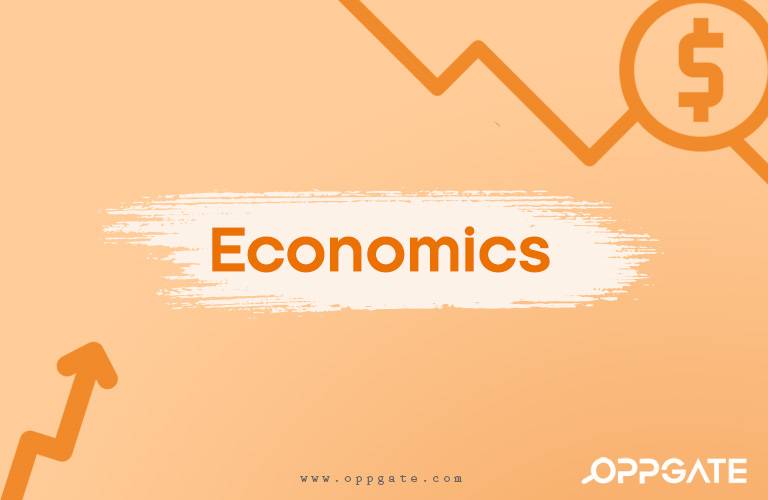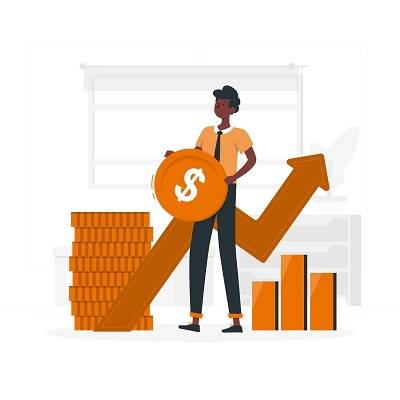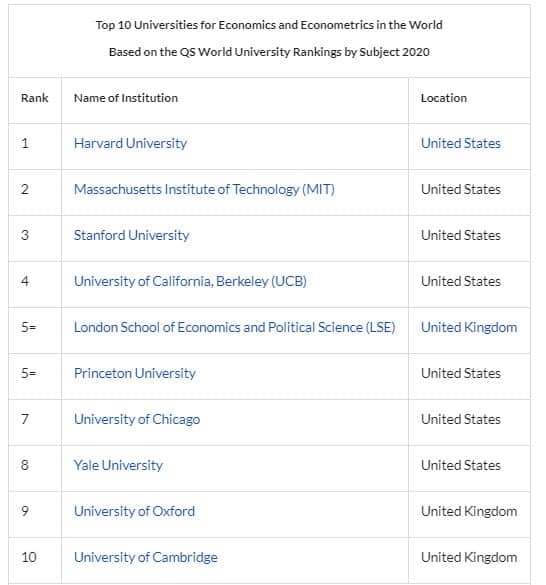You might be a high school graduate student who is considering studying Economics, yet you are not quite sure what the major is really about. You might have tons of questions in your head as to what you are going to learn, what are the benefits of studying economics, how and where you are going to apply that knowledge you learn? what are the skills you will gain from a degree in Economics?
In this article from our university majors guide, you are going to find information that will help you make an informed decision about whether or not you should pursue a bachelor’s in Economics, and shed light on the importance of studying Economics
What is Economics?
Economics is a social study concerned with the allocation of scarce resources among individuals in a society. In simple words, there are only a few limited resources but too many people wanting too many things. So, how do we allocate these recourses?
This is, in brief, what Economics as a study deals with. Economics is a study of how people make choices or take decisions under specific conditions. While this is just a brief definition of Economics since it is a very broad field that deals with various aspects of a society, it reflects the essence of what Economics as a study is about.
Why study Economics?
A major in Economics focuses on the analysis of the human decision-making process to allocate limited resources which will affect the decisions they take whether in production, consumption, investment, policy, and other areas.
It equips students with the theoretical knowledge and tools to study how human beings in society take these decisions whether on a small scale on the level of individuals and firms which is the concern of microeconomics or on a large scale such on the level of governments and countries, the concern of macroeconomics.
Watch this video to learn the difference between microeconomics and macroeconomics which are the two major branches of Economics.
Studying Economics is also useful because it teaches students economic modeling by gathering data and conducting quantitative analysis to predict the impact of the decisions of the economic agents. These decisions could be policy decisions in politics, environments, demographics, or decisions in the finance world such as investments and the stock market. Hence, it is a multidisciplinary science that is concerned with various aspects.
Fields in Economics
As mentioned earlier, Economics is a very broad field due to its multidisciplinary nature that deals with many aspects of an economy. Economics is not only related to money and banks as one might think. This is because the economy shapes many aspects of society including people’s behaviors, norms, traditions, and even cultures.
As you are approaching the last year or two of your studies as an Economics student, or perhaps if you chose to pursue your postgraduate studies in Economics, below are some of the major fields in Economics you can consider focusing on.
Major fields in Economics
- Economics Development.
- Economic History.
- Health and education Economics.
- Financial Economics.
- Behavioral Economics.
- Agricultural Economics.
- Public Economics.
- Mathematical Economics/ Econometrics.
Benefits of Studying Economics
There are many benefits one could gain from a bachelor’s degree in Economics in terms of the skills and knowledge obtained.
While it is difficult, to sum up, these benefits as it subjective to the goals of each individual, below you can find some points that can give you an overview of the benefits of a degree in Economics
- First, it will help you understand the world around you better and learn how governments and business functions and analyze economic events as well such as unemployment, trends in stock markets, financial crises and others.
- You will learn quantitative mathematical analysis and problem-solving skills by gathering and analyzing data through statistical software programs which are important skills for the job market.
- It has a wide range of applications that will not restrict you in your career prospects. For instance, if you are passionate about the financial side of the economy which deals with banks and the stock market, you will find many opportunities in this area. On the other hand, if you are interested in the social problems of a country such as health, education, or inequality, you can also choose to focus on this area.
Challenges of studying Economics
There are no disadvantages per se for choosing Economics as a major or any major for that matter as this subjective. However, we have summarized some challenges below that people might often face when studying economics.
Math, Math, and Math. You will have to go through many math courses as an Economics student. The number of math courses you will have to take varies from a university to the other. However, most programs require students to take courses in calculus, statistics, linear algebra, and other advanced math courses.
Economists will often need to conduct quantitative analysis and interpret numerical data. So do make sure you do not mind a lot of mathematics before pursuing a major in Economics.
Economics might seem a little theoretical. If you have taken an Economics course in high school, you would know by now that economists like to reduce everything into simple models and graphs and to use unrealistic assumptions. However, this is not what it’s all about. As you dig deep into the field, you will be introduced to the different schools of thought and theories in the field.
Strong competition. Economics is one of the most prominent majors today, hence there are many graduates with an Economics degree which makes the competition in the job market quite strong. So you will have to work hard on your skills to compete for economics degree jobs.
A Bachelor's Degree in Economics
In this section, you will find information on what you will learn during your studies as an undergraduate student in economics, and the courses you will take. Also, it will provide you with a list of the most common job opportunities for economics graduates and also show you briefly the future of Economics as a major in terms of employment opportunities in the future.
Undergraduate Courses in Economics
The majority of Bachelor programs in Economics offer similar basics courses in Economics, particularly in the first and second year of study. These basic courses are often required and all economics students will have to take them.
The elective courses that you get to chose, later on, will vary from a university to the other depending on the research areas of the department and their faculty members as well.
Required courses in Economics
Here are some of the required undergraduate courses in economics that you would have to take:
- Intro to Microeconomics.
- Intro to Macroeconomics.
- Advanced Macroeconomics theory.
- Advanced Microeconomics theory.
- Econometrics.
- Statistics for Economics.
Elective courses in Economics
Some of the elective courses that might be available at your university:
- History of Economic thought.
- Game Theory.
- Public Economics.
- Development Economics/ Economic Growth.
- International Economics.
- Labor Economics.
- Institutional Economics.
Job Opportunities for Economics Graduates
The global labor market is in demand of economics graduates due to their applicable analytical and problem-solving skills. Therefore, an economics degree might boost your chances of employability in the job market.
Perhaps, the diverse sectors of employment for holders of an economics degree is the most important benefit of studying Economics. Job opportunities for economics graduates are extremely wide including the financial sector such as banks and consultant companies like McKinney and Deloitte.
You can also work in the public and government sector and the NGO sector with NGOs like the United Nations, the World Bank, or the IMF. You can also work in research and in academia. Therefore, a background in Economics can open many career doors for you
Below are some of the most popular economics degree jobs that might help you get a sense of what jobs are available for you once you graduate.
- Economist
- Financial consultant
- Accounting-related fields.
- Data analyst
- Policy Analyst
- statistician
This is just a brief list of the jobs that you can consider. In reality, opportunities for Economics graduates are immense from small companies to multinational companies, to governments and organizations.
Also read: Why Political Science Major?
The future of Economics
The field of Economics is currently in high demand due to its applicability in a wide array of fields. While the global job market is increasingly competitive, it depends on how you utilize the knowledge and skills and how you build your profile to build a career for yourself in Economics.
brief History of Economics
Economics is a social study that goes back to the 1970s. The birth of economics as a discipline is brought about in 19766 when Adam Smith published his famous book “The Wealth of Nations” which discusses some of the most important concepts and theories taught in Economics today.
Below you can find brief information on the history of economics and the top universities to study economics in.
Father of economics and other famous scholars
The study of Economics goes way back to Ancient Greek thinkers and philosophers such as Aristotle who studied concepts such as wealth and property. However, Adam Smith is credited today for being the founder of economics as a discipline and he was influenced by the ideas of French philosophers.

There are many influential economists who made revolutionary contributions to the field of Economics. Below you can find four of the most important figures in economics along with Adam smith.
- David Ricardo.
- John Maynard Keynes.
- Alfred Marshall.
- Milton Friedman.
Best universities to study Economics
The top universities for studying Economics are mostly located in the United States and the United Kingdom. The ranking of the top universities can vary based on the indicators that are used for ranking.
In this article, the top 10 universities for studying Economics are listed below according to the QS World University Ranking for 2020. Their indicators include academic reputation, and employer reputation, and scientific research.
Conclusion: Studying Economics
In brief, economics as a social study has long existed and continues to be one of the most prominent fields in academia. If you are interested in learning about the world around you, from history to politics, to international affairs, and how they impact the decisions of consumers, business, and government, you might find a bachelor’s degree in Economics one that fits your interest.
Mastering the skills in the field, including the use of mathematics and statistics skills can prepare you for the job market and open various doors for you professionally.





